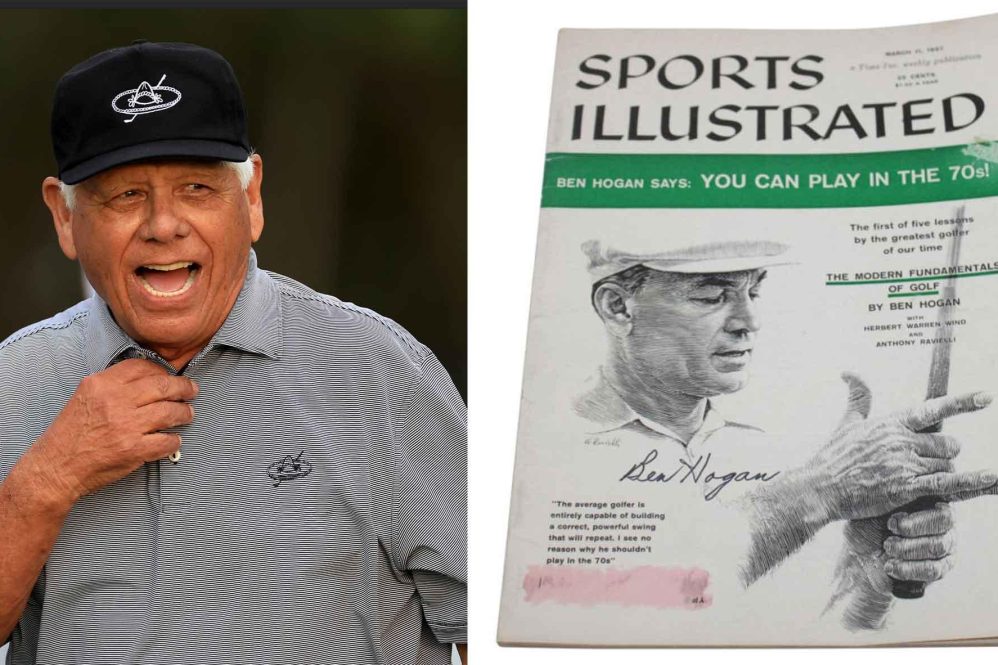The Mental Game of Golf: Elevating Performance Through Psychological Mastery
Golf is not just a test of physical skill; it demands a robust mental framework that can significantly influence performance. Top-tier golfers excel in their mental game, allowing them to handle pressure, navigate challenges, and make strategic decisions on the course. This article explores the psychological elements that shape golf performance, emphasizing focus, emotional regulation, and cognitive strategies.
Understanding the Role of Psychology in Golf
The modern golfer must adopt a holistic approach that integrates both physical prowess and cognitive skills. Mental acuity is essential for making quick decisions and maintaining concentration amidst distractions. By incorporating psychological training into their practice routines, golfers can unlock new levels of performance.
Key Cognitive Challenges in Golf
Golfers face various cognitive hurdles during play:
- Decision-Making: Evaluating course conditions and selecting appropriate shots.
- Focus Maintenance: Sustaining attention while managing external distractions.
- Memory Utilization: Drawing on past experiences to inform current choices.
- Emotional Control: Regulating feelings under stress to maintain composure.
Strategies for Enhancing Mental Performance
Integrating cognitive techniques into training can bolster a golfer’s mental resilience:
- Visualization Techniques: Imagining successful shots helps reinforce positive outcomes.
- Simulated Scenarios: Practicing under realistic conditions enhances decision-making skills.
- SMART Goals: Setting Specific, Measurable, Achievable, Relevant, and Time-bound objectives sharpens focus.
- Mindfulness Practices: Techniques such as meditation or deep breathing improve concentration and reduce anxiety.
The Interplay Between Swing Mechanics and Decision-Making
A thorough understanding of swing mechanics is crucial for consistent performance on the greens. Emphasizing tempo, rhythm, and balance can lead to improved shot accuracy:
| Aspect | Impact |
|—|—|
| Tempo | Consistency |
| Rhythm | Smoothness |
| Balance | Stability |
| Cause-and-Effect Awareness | Informed Choices |
By fostering situational awareness—recognizing how different factors affect shot selection—golfers enhance their ability to make informed decisions throughout their game.
Developing Focus and Emotional Resilience
Achieving peak performance requires an effective blend of physical skill with mental discipline. Establishing pre-shot routines—such as visualization or positive affirmations—can help golfers channel their energy effectively before each stroke.
Moreover, cultivating emotional resilience allows players to manage setbacks gracefully while maintaining a constructive mindset throughout the game.
Mastering Course Management Through Cognitive Skills
Effective course management hinges on strong cognitive abilities; understanding hazards and distances enables better decision-making regarding club selection:
- Analyze each hole meticulously before playing.
- Practice various shot types under diverse conditions to understand ball behavior better.
- Keep detailed records of your rounds; this data aids in identifying patterns for improvement over time.
Implementing Cognitive Training Techniques
To elevate golf proficiency through cognitive training:
- Establish a structured pre-shot routine that includes visualization exercises aimed at reducing anxiety while boosting confidence.
- Identify personal obstacles like fear or negative self-talk; develop strategies tailored to overcoming these challenges through focused practice sessions.
- Engage in mental rehearsal by visualizing successful shots prior to gameplay—a technique proven effective for enhancing focus during critical moments on the course.
integrating psychological insights into golf training offers transformative benefits for players seeking mastery over both mind and body on the greens. By honing these skills alongside technical abilities, golfers position themselves for greater consistency—and ultimately success—in this challenging sport.
Read more at: [Insert URL]
Read more at: https://golflessonschannel.com/the-psychology-of-golf-mastering-the-mental-game-in-golf-training/

Unlocking Golf Excellence: The Power of Cognitive Analysis in Your Swing
Meta Title
Unlocking Golf Excellence: Elevate Your Game with Cognitive Strategies
Meta Description
Discover how cognitive analysis can transform your golf game. Learn techniques to enhance performance, improve decision-making, and master your mental approach to golf.
Understanding Cognitive Strategies in Golf
When we think about golf performance, the first aspects that come to mind are technical skills like swing mechanics and putting techniques. However, it’s equally essential to recognize the role of cognitive strategies. These mental tactics can influence your game in profound ways.
What Are Cognitive Strategies?
Cognitive strategies involve mental processes that help golfers analyze situations, regulate emotions, and make informed decisions. Here are some key components of cognitive strategies in golf:
- Focus: Concentrating on specific tasks or actions, ignoring distractions.
- Visualization: Imagining successful shots and courses before playing.
- Self-talk: Using positive affirmations to build confidence.
The Mental Game: Enhancing Performance
Incorporating cognitive strategies into your golf routine can yield significant results. Here are essential areas to consider:
1. Emotional Regulation
Golf can be an emotionally charged sport. Mastering your emotions can lead to better decision-making and playing under pressure.
Tips for Emotional Regulation:
- Deep Breathing: Use breathing exercises to calm nerves before critical shots.
- Mindfulness Practice: Engage in meditation to enhance your focus and awareness on the course.
2. Decision-Making Under Pressure
Effective decision-making is crucial, especially in high-stakes situations. Cognitive analysis allows golfers to evaluate risks and rewards effectively.
Key Considerations:
- Assessing Risk: Understand when to play conservatively versus aggressively.
- Course Knowledge: Familiarize yourself with the course to make quicker, informed decisions.
3. Visualization Techniques
Visualization can be a powerful tool in your mental training arsenal. Before stepping onto the course, visualize each shot and its desired outcome.
Steps to Effective Visualization:
- Imagine the Environment: Picture yourself on the course, feeling the grass and hearing the sounds.
- Focus on Success: Visualize hitting the perfect shot and how it feels emotionally and physically.
Benefits of Cognitive Analysis in Golf
Adopting cognitive strategies has numerous advantages that can elevate your golf game:
Enhanced Focus and Concentration
By practicing cognitive strategies, golfers can improve concentration levels, allowing them to focus on each shot despite external distractions.
Increased Confidence
Utilizing techniques such as positive self-talk can boost your confidence, helping you tackle challenging courses and shots.
Improved Course Management
Cognitive strategies facilitate better course management, enabling golfers to play smarter and avoid unnecessary risks.
Practical Tips for Integration
Here are some practical tips to integrate cognitive strategies into your golf routine:
Develop a Pre-shot Routine
A consistent pre-shot routine can help prime your mind for focus. Consider incorporating the following steps:
- Identify the Target: Keep your target in mind to visualize the shot.
- Check Your Alignment: Ensure proper body alignment with your target.
- Use Affirmations: Recite a positive affirmation to instill confidence.
Record and Reflect
Keeping a golf journal can help track your cognitive strategies and overall performance. Record your thoughts on each round, noting what worked and what didn’t.
Engage in Mental Warm-ups
Just like physical warm-ups, mental preparation is key. Spend a few minutes before play engaging in visualization and relaxation techniques.
Case Studies: Successful Integration of Cognitive Strategies
Case Study 1: The Transformation of a Weekend Golfer
A dedicated weekend golfer struggled with anxiety during tournaments. By adopting cognitive strategies like mindfulness and visualization, he improved his on-course focus and reduced anxiety levels. Over six months, his scores dropped significantly.
Case Study 2: Professional Golfer’s Mental Coach
A top PGA Tour player hired a mental coach to fine-tune his cognitive strategies. They worked on decision-making under pressure, which led to improved placement strategies and lower scores throughout the season.
First-Hand Experience: A Golfer’s Journey
As an avid golfer, I’ve experienced the shift cognitive strategies can bring to the game. Initially, I struggled with pressure during tournaments. However, after incorporating visualization techniques and mindfulness exercises into my routine, I felt more in control of my emotions on the course. My scores improved, and I found greater enjoyment in the sport.
Success Stories from Fellow Golfers
Several golfers have shared their success stories after integrating cognitive methods into their practice. Many report lower scores and a newfound enjoyment in their rounds.
Sample Cognitive Strategies Table
Here’s a concise table summarizing valuable cognitive strategies for golfers:
| Strategy | Description | Benefits |
|———————-|—————————————————-|———————————–|
| Emotional Regulation | Control emotional reactions during play | Better decision-making |
| Visualization | Mental practice of shots and outcomes | Increased confidence |
| Mindfulness | Staying present and focused | Enhanced focus |
| Self-Talk | Positive affirmations before shots | Boosted self-esteem |
| Course Management | Strategic play based on course conditions | Smarter gameplay |
Conclusion (Remove if Adding a Conclusion Section)
By exploring the role of cognitive strategies in golf, players can unlock their potential and achieve excellence. From improving focus and decision-making to enhancing emotional regulation, the mental game is a critical aspect that every golfer should prioritize.
Through practice and dedication to these cognitive techniques, you will find yourself not only hitting better shots but also enjoying the game to its fullest.
Feel free to implement these insights and see the difference they can make in your performance!







